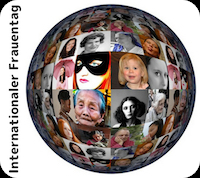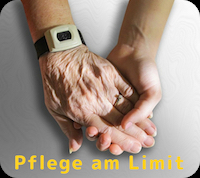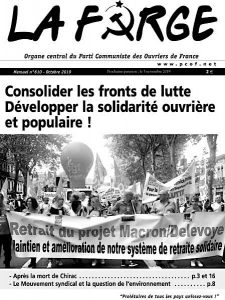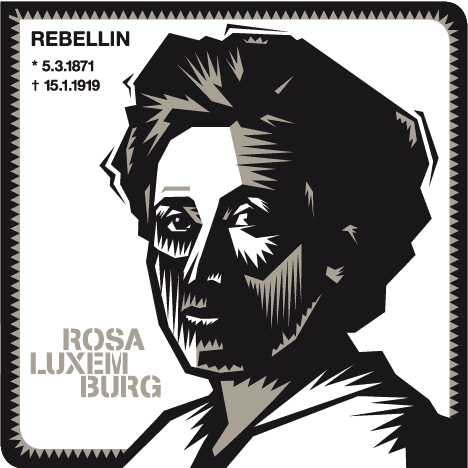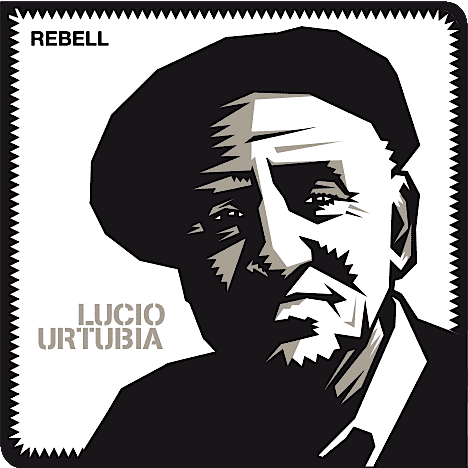In any case this dispute, although it does touch on important questions for all the wealthier countries, now seems troublesome and unnecessary to many on the left, and some claim that at the bottom personality questions may be involved. There is still hope that the dramatic birth of Aufstehen on September 4th, aimed at attracting left-leaning people from all parties and winning many away from the AfD, may soon begin to go into action and strengthen the progressive movement, not divide it.
Other more rigidly leftist critics complained that the huge rally failed to call for basic changes in the current German government with its conservative CDU and its lame and plummeting Social Democrats. Simply opposing racism and calling for better social conditions does not get at the root of German militarism, imperialism, indeed capitalism. They described its message with the derogatively sarcastic description “Friede, Freude, Eierkuchen” which translates as “Peace, joy, griddle cakes”.
In view of its wide range of supporters this cannot be fully denied. But the answer, by close to a quarter million people, was the need to fight fascism with as broad a range of support as possible. No history tomes are needed to see parallels with the avalanche of 80-90 years ago – all too similar to that of the AfD and its allies, from its thugs to its highly-placed political leaders in the ”Christian” parties – and to recall what that brought to Germany and the world.
.
Which leads to last Sunday’s election in Germany’s largest, wealthiest state, Bavaria. Was it good, happy news? It too certainly involved drama!
The misnamed Christian Social Union (CSU), the Bavaria-only sister-party of Angela Merkel’s equally misnamed Christian Democratic Union (CDU) has ruled there since the Federal Republic was founded, mostly alone thanks to winning over 50 % in an almost solid reactionary south, close to though rather worse than Merkel’s general backing. But in the üast year or two, fearing losses to the AfD, the two rival bosses of the Bavarian CSU, one ruling in Munich, the other, Horst Seehofer, the Interior Minister in the all-German government, tried to outdo the AfD in nastiness against refugees, blocking and interning them at the main refugee entrance points along the Austrian border, in cahoots with the far right government in Vienna. Seehofer even snarled publicly at Merkel, an untold breach of official etiquette.
Shortly before the election they realized their tactic was not working; rabid rightists would vote for the AfD rather than its copycat. But their switch in tone came too late. Last Saturday, on October 14, they got the second worst vote in their history, a measly 37 percent (rounding off the figures). Though still the largest party, they must now shop around for a coalition partner to get 50% and enough state legislators to form a government. Their big loss evoked many happy smiles described best with another good German word – Schadenfreude! Hurrah, they got whipped!
But also whipped, even more disgracefully, were the Social Democrats, who have been slithering downhill everywhere since they joined Merkel & Co. in a joint national government. Their Bavarian vote was an incredibly low 9.9 %, their very worst result anywhere in Germany in 70 years. Here too there are some who enjoy Schadenfreude; Social Democratic leaders have too long played a sad role – between weak knees and hypocrisy – and are increasingly heading towards insignificance. Some say “Good riddance to bad rubbish” and expect an almost equally poor showing in the important state election in Hesse on October 28th (the last vote this year).
But who gained the votes lost to those two parties – which still run the federal government in an increasingly divorce-threatened marital arrangement? One gainer was the Bavaria-only Free Voters Party, a largely rural gathering catering to the lederhosen-and-dirndl crowd in Alpine leas and villages. It will now probably join in a new governing coalition in Munich.
The major gainer, however, was the Green party, which soared from 10 % in 2013 to over 18 % this time, putting them in an almost mind-boggling second place. Considered a wildishly radical bunch years ago, fighting on environmental issues while wearing or knitting woolen sweaters right in Bundestag sessions, they have sobered up considerably as many members got older and much better off, frequently in well-paid professions. They still talk ecology but not much about the rights of working people and even less about opposing war. They do oppose the anti-immigrant policies of those on the right. In any case, since they are not in either the Bavarian or the federal government, and thus not part of “the Establishment”, they have become the surprising choice for many of those who are unhappy, insecure and often ill-treated.
Others, Alpine-isolated or very Catholic-bound, but also angry and worried, still see the Greens as a bunch of wild-eyed, long-haired or (God help us) even gay hippies and fear every darker skin-color or any woman with a head cloth and an assumed IS terrorist hiding behind her. Those are the ones who voted for the AfD which, with almost 11 %, finally won seats in the legislature. Not as many as they expected but from a federal viewpoint more than frightening.
Behind all the current percentage arithmetic, and the tense wait for the election results on October 28th in Hesse, the rapid drop in support for the two traditionally ruling parties could lead to a breakup of the federal government. And that could very well necessitate new elections, with the AfD already balancing nation-wide on or around a strong second place. That is the growing worry of a large slice of the electorate – and helps explain the Berlin parade described in my earlier paragraphs.
What about the LINKE, which should have gained strength from the spreading dissatisfaction, but has been stuck nationally at 9-11 % and in Bavaria, despite hopes for a miracle, was again unable to reach the required 5 % level to win even a few seats in the legislature of Bavaria, its weakest region. It did indeed increase its vote of five years ago from 185,000 (1.1 %) to 436,000 on Sunday, just over 3 %, a number which would be envied in some countries. Now the LINKE is hoping for a predicted 8 % in more enlightened Hesse (with Frankfurt).
There were lots of angles last weekend. Can those two days be judged as successful? I must return to the same indecisive answer: Jein!
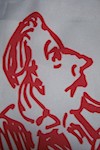
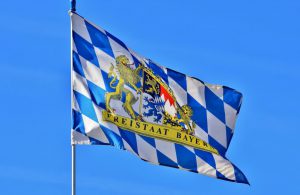 Aber die Klatsche für die die Parteien der GroKo ist nicht auf den „Freistaat“ Bayern beschränkt. In zwei Wochen wird in Hessen gewählt. Nahles Hoffnungen ruhen nun auf der vagen Aussicht, dass sich dort SPD-Chef Thorsten Schäfer-Gümbel besser schlägt. Sie selbst dürfte eines der Haupthindernisse dafür sein. Ihr sofortiger Rücktritt dürfte dessen Chancen vielleicht etwas verbessern.
Aber die Klatsche für die die Parteien der GroKo ist nicht auf den „Freistaat“ Bayern beschränkt. In zwei Wochen wird in Hessen gewählt. Nahles Hoffnungen ruhen nun auf der vagen Aussicht, dass sich dort SPD-Chef Thorsten Schäfer-Gümbel besser schlägt. Sie selbst dürfte eines der Haupthindernisse dafür sein. Ihr sofortiger Rücktritt dürfte dessen Chancen vielleicht etwas verbessern.






















